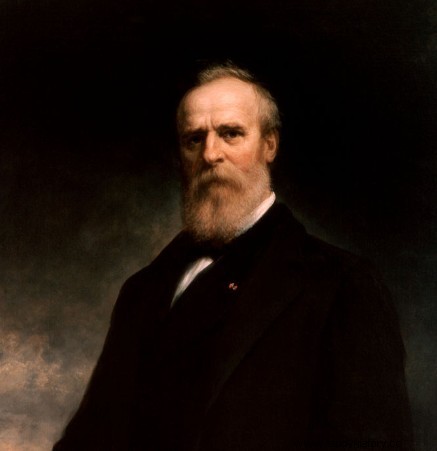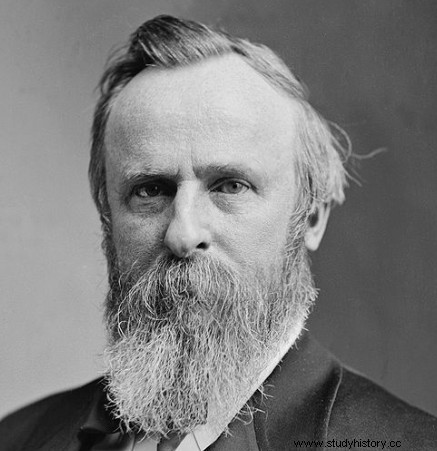The latter half of the 19th century was a turbulent century when new nations such as Germany, Italy and Japan were born, and France and Britain embarked on imperialism. In this era, the United States was in a period of high economic growth called the "Kinpika era," and it was Rutherford, the 18th President of the United States, who could not take any particularly effective measures against the problems that arise with rapid social development.・ Haze.
Rutherford B. Hayes before the President
The Hayes clan is one of the oldest American immigrants from Scotland in the first half of the 17th century, and settled in Delaware, Ohaillo, during Hayes' childhood. It is said that his father died when Hayes was young, and his mother and his younger brother raised the Hayes.
An academically talented Hayes went to Kenyon College, Ohio, where he studied law at Harvard Law School after graduating. He became a lawyer, but joined the Army in 1861, was promoted to colonel in 1862, and was promoted to major general by the end of the Civil War.
Most American presidents are either military commanders or lawyers, but presidents with both backgrounds are rare.
Hayes ran for the 1876 presidential election and was the narrowest winner in history. His final election vote was 185 and 184, a one-vote difference, with only a few general votes.
This result was quite controversial, with some rumors that there must have been election fraud. At that time, it was during the reconstruction period from the Civil War, and it was well-received that there might have been a back-door transaction with the South. As a result, Haze will be nicknamed "His Excellency Ikasama."
19th President of the United States

Hayes withdrew federal troops from the South as soon as he became president. This led to more lynching and assault deaths against blacks in the South, but Hayes seemed to have little interest in such issues, saying, "It's better to leave blacks to humans in the South." ..
On the other hand, Hayes was a politician who embodied the politics for the wealthy and the powerful, such as suppressing the labor problem by force, and carried out the politics of industrial capitalist dominance that continued to grow after Grant.
This era was called the "Gilded Age" after Mark Twain's novel, famous for Tom Sawyer's adventures, and it was a time when people were only interested in gold, their ideals were lost, and corruption was widespread.
President Hayes is the embodiment of such an era, and there is nothing special about his policy.
Haze's late years

Hayes has professed not to be reelected during his tenure, and he did not run for the 1880 presidential election. He was an undisputed haze during his presidency, but after his term he was said to have tackled educational issues and continued to mourn the growing gap between rich and poor in the United States.
This is probably the result of industrial capitalists such as Rockefeller having more power than the president. It may be correct that Haze couldn't do anything, but he wasn't allowed to do anything.
In 1893, Hayes died at his home in Ohyo. He died at the age of 70.
